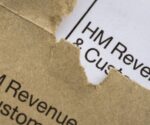HMRC warns of ‘fast approaching’ deadline with £900 fine | Personal Finance | Finance
Millions of UK workers could be at risk of missing a crucial deadline and incurring fines from HM Revenue and Customs (HMRC). The majority of people who need to file a Self Assessment must pay the tax they owe by 11.59pm on January 31, 2026.
Those required to submit an online tax return must also adhere to this deadline or face a penalty for late filing. Many people new to the Self Assessment system must have their Unique Taxpayer Reference to correctly file for the 2024/25 tax year.
Conversely, those who no longer need to submit a return are being urged to contact HMRC directly. Failure to do so could result in a fine, even if you’re no longer required to submit a tax return.
In a post on X, HMRC warned: “The #SelfAssessment deadline is fast approaching. If you no longer need to submit a tax return, let us know as soon as possible.”
Penalties for missing the tax deadline
HMRC has the authority to issue a financial penalty for any overdue tax returns. Starting with a fixed £100 charge, this can quickly escalate if ignored.
If you fail to file your tax return within three months of the deadline, you’ll incur additional penalties of £10 daily, up to a maximum of £900. After six months, this penalty increases to five per cent of the tax owed or £300, whichever amount is larger.
After a year, an additional charge of 5% or £300 will be applied – whichever is the higher amount. HMRC emphasises that these fees can be easily avoided by simply submitting your Self Assessment tax return on time.
In addition, those who are late in paying tax will initially need to pay 5% of the unpaid tax at the 30-day mark after it was due. This will then increase by 5% again for six months and 12 months late, respectively.
HMRC has pointed out that taxpayers will also be charged interest on any amount of tax they owe.
Telling HMRC you’re no longer self-employed
If you believe you are no longer required to submit a tax return, you must tell HMRC or you could still be fined. This may apply if you stopped being self-employed, no longer pay the High Income Child Benefit Charge, or are no longer renting out a property.
However, HMRC highlights that you can still choose to remain registered as a sole trader to help prove you’re self-employed for some benefits such as Tax-Free Childcare or if you want to make Class 2 National Insurance payments.
Keep in mind that you must send a final tax return to HMRC if you’re stopping trading as a sole trader or you’re leaving a business partnership. Your final tax return must include:
- Your worked out trading income
- Your final profit or loss
- Your allowance expenses
- Your Capital Gains Tax if you owe it
- Your capital allowances, such as balancing charges for sold business equipment
Once you update HMRC over any changes to your tax status, the government department will write to you, confirming whether you need to send a tax return or not. Further details on stopping self-employment can be found here.









